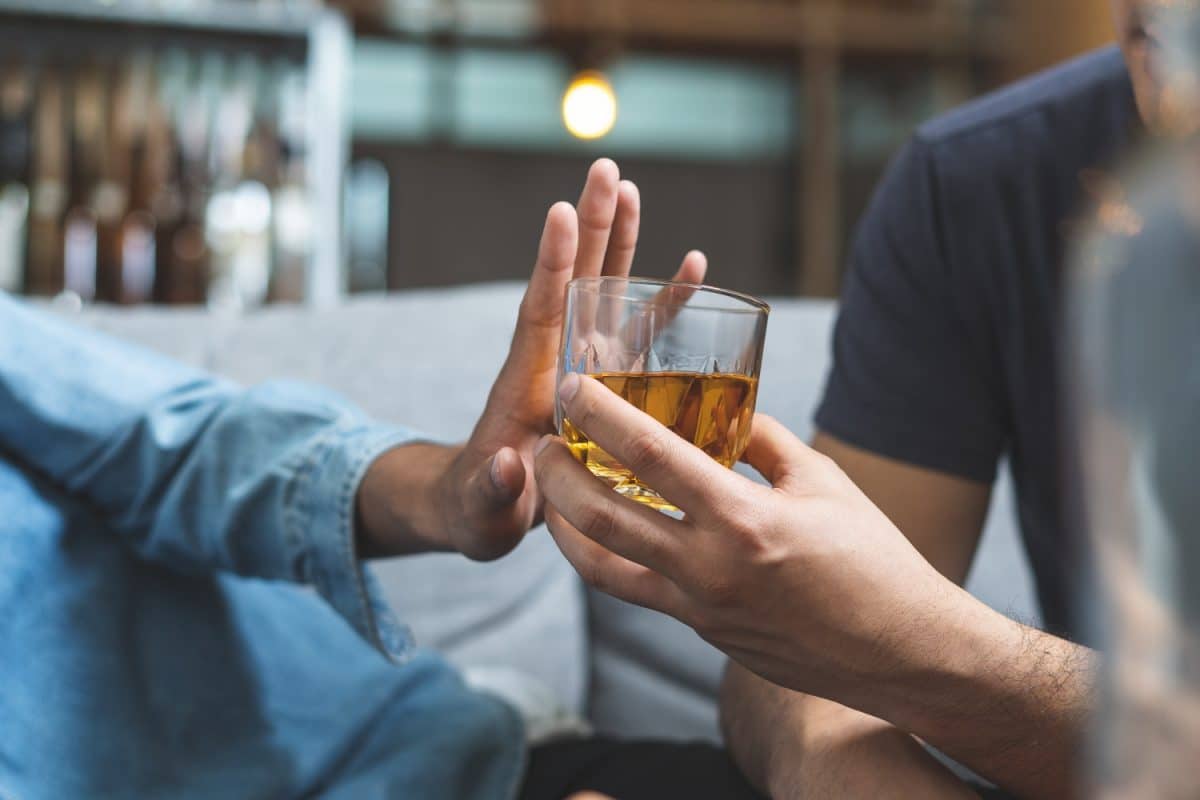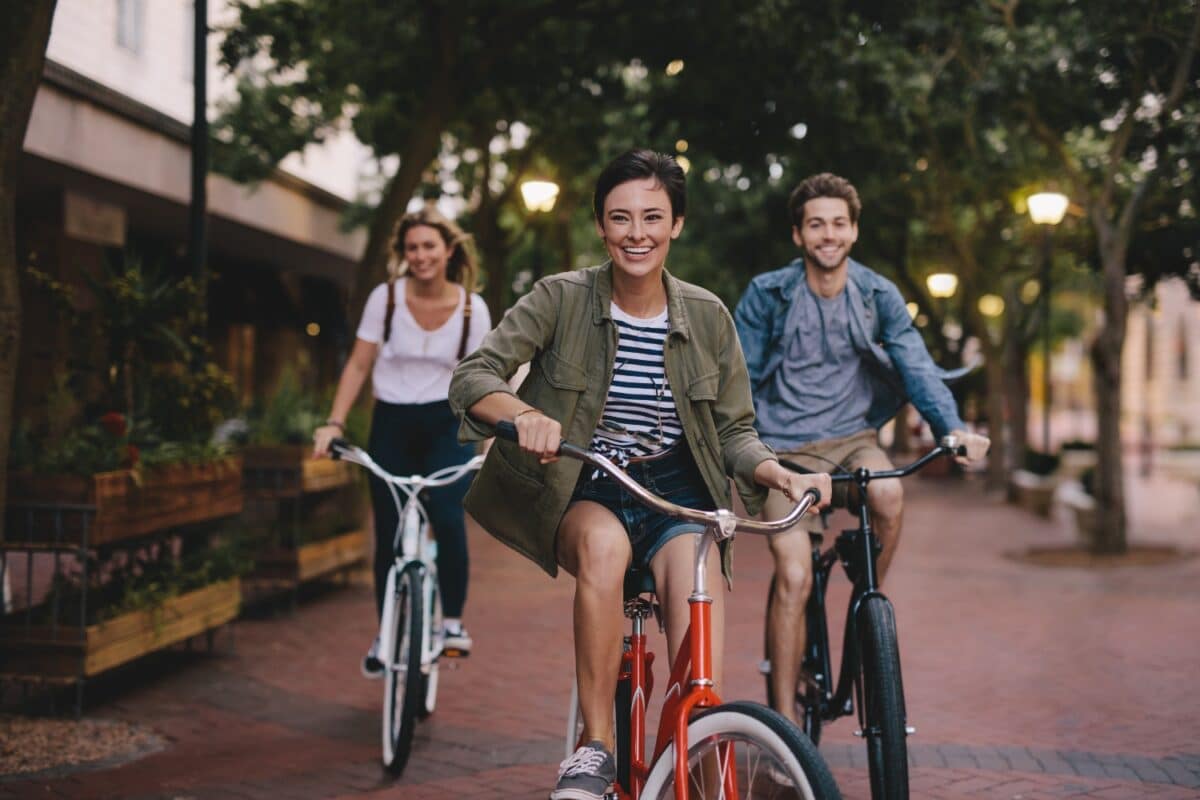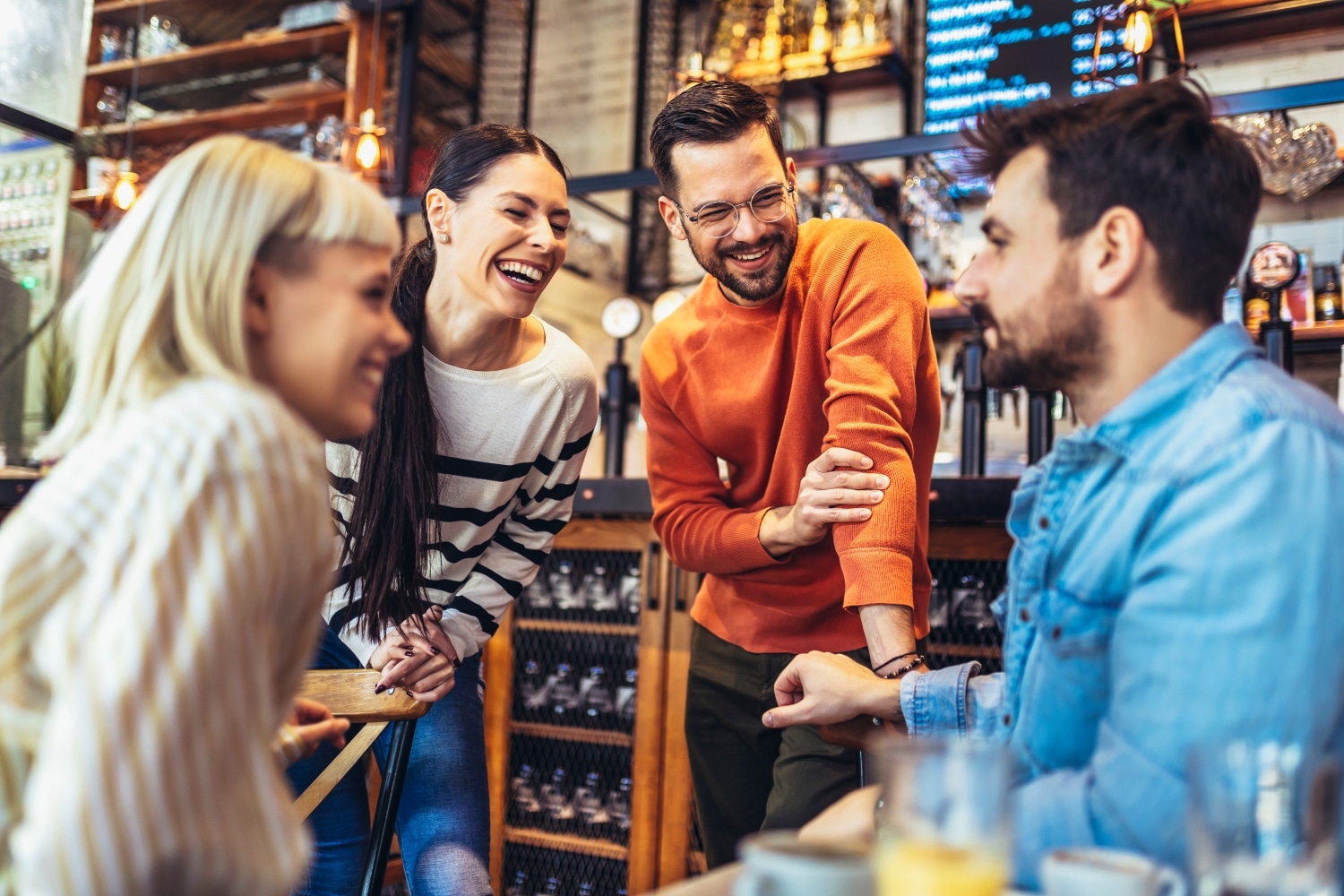You often hear people say they need some ‘Dutch courage’ before a date or a big social occasion. Alcohol or drugs are often-used social lubricants that many people rely on to feel more comfortable in certain social situations.
For those recovering from substance addiction, socialising without these crutches can be daunting.
Social anxiety is a common mental health disorder that is often an underlying cause of addiction. People may self-medicate with addictive substances to manage anxiety to such a point that it becomes difficult to cope with social situations when sober.
However, particularly in the early stages of addiction recovery, it’s crucial to have a strong social support system. That’s why it’s important to try to maintain existing relationships by continuing to socialise with friends and family.
Unfortunately, this can often mean finding yourself in scenarios where not drinking or taking drugs makes you feel like an outsider.
In recovery, it’s essential to develop healthy coping mechanisms to help you manage such situations and learn to feel comfortable and confident navigating social situations sober.
Here are seven tips for socialising sober when you’re in recovery.
1) Practise visualisation techniques
Visualisation can be an effective way to prepare you for tackling social situations while newly sober. It can help you to manage your body’s response to stressors and learn to cope with difficult situations.
Visualisation is the process by which you can achieve your goals by imagining what it would be like to attain them. It’s a science-backed form of self-motivation whereby you’re more likely to achieve your goals because you set yourself higher expectations.
Visualising an action activates the same regions of the brain that respond when we actually perform it. Through visualisation, your brain creates new neural pathways, effectively training your brain to be prepared.
Visualisation works best when paired with mindfulness and meditation. In fact, the best time to practice visualisation is right after meditating, when you’re feeling relaxed and focused.
The standard process is as follows:
- Choose a quiet environment with minimal distractions.
- Close your eyes and breathe deeply and steadily.
- Think about the outcome or situation you wish to achieve, using all five senses to visualise it as clearly as you can.
- Repeat this practice daily for the best results.
Before you go out, try using the above process to imagine yourself in the upcoming social situation, talking to people, laughing, being confident and enjoying yourself.
Repetition will train your mind to respond this way when faced with real situations.
2) Be prepared to feel uncomfortable at first

If you’re used to relying on drugs or alcohol to reduce social anxiety and feel more comfortable in social situations, going without will inevitably feel alien to you.
Avoid falling into negative thought patterns in which you believe you’re only fun, charismatic or interesting when taking substances. These traits are part of your personality already; substances merely reduce your inhibitions, making it easier to bring them out.
Likewise, don’t feel pressure to be as loud or as exuberant as you may normally be while intoxicated; instead, socialise in a way that makes you feel comfortable. For example, perhaps you could start by trying to strike up one-on-one conversations rather than approaching large groups.
Social events can be an opportunity for personal growth and to develop your social skills. If you approach it as such, over time, you’ll become more comfortable socialising sober and no longer feel like you need to be under the influence to enjoy making connections with people.
3) Plan your consumption beforehand
It goes without saying that an alcoholic can feel triggered by being in an environment the brain associates with drinking, such as a bar or restaurant. However, important social events will inevitably occur in such locations – and you shouldn’t have to miss out because you’re in recovery.
Most social spaces where alcohol is consumed also offer alcohol-free options. Supportive friends and family should be willing to choose a venue with a good variety of alternative choices for non-drinkers.
These days menus are almost always available online, so you can reduce anxiety by planning what you’ll have to drink before leaving your house.
If you’re feeling anxious about attracting unwanted attention from others who may notice you’re not drinking, it can be helpful to hold a drink that looks like it could be alcoholic – a soda water and lime, for example, or a mocktail.
If you’re going to a gathering at someone’s house, you can bring your own soft or alcohol-free drinks or offer to bring an appetiser or dessert instead if you’re expected to ‘bring your own booze’.
4) Spend time with supportive friends
A strong support system is key to recovery and preventing relapse. Social isolation, conversely, can contribute to substance addiction. This is why your relationships with others are crucial in recovery.
Try to spend time with people who support your recovery and avoid anyone who tries to coerce you into drinking or taking drugs or undermines the progress you’re making.
If you feel comfortable, you can invite a close friend to attend social events with you and act as a supportive sober partner who will keep you away from triggers, step outside with you if things get too much, or even leave an event with you if you feel overwhelmed.
5) Set boundaries and don’t feel pressured to explain yourself

People are naturally curious and may want to know why you aren’t ‘joining in on the fun’, particularly if you were previously a heavy drinker or drug user.
Your close family and friends may know you’re in recovery, but you shouldn’t feel you have to share this with people you don’t know well.
Curiosity becomes pressure when others start to push for the reason why you aren’t indulging. Peer pressure can be challenging to resist, but you don’t owe an explanation to anyone: it’s fine to simply say you don’t feel like answering a question. This is a boundary, and others should respect it.
However, continued questioning can become annoying. Short and firm responses are the best strategy to put an end to this. Some responses which may satisfy inquisitive strangers or acquaintances are:
- “I have a lot of work on at the minute; I can’t afford to be hungover.”
- “I’m trying to reduce my calorie intake.”
- “I’m working on my fitness.”
- “I’m driving tonight.”
6) Have an escape route planned
Having an exit strategy can also make social situations more manageable when you’re newly sober.
Of course, you don’t need a reason for leaving an uncomfortable situation, but it can be less stressful for you if you have some excuses prepared in advance. For example, maybe you told the babysitter you’d be home at a specific time. Or you have something important to do the following day?
It also helps to plan your route home beforehand. For example, check public transport times so you don’t miss the last train, bring your car so you can leave whenever you want or pre-book a taxi.
Having a planned escape route can also help you to manage your time. If you’ve only recently started your recovery, you may find it easier to only attend social gatherings for a short while rather than staying for the entire duration of an event with an undefined end time.
Being around others later in the day once they have over-indulged can be particularly difficult to deal with when you’re newly sober – so never feel bad about leaving early.
7) Propose social activities that don’t involve drinking

Part of recovery is learning to avoid triggers, especially in the early stages. This could mean avoiding environments where alcohol or drugs will be present altogether.
Offering to organise alternative activities gives others a break from the responsibility and allows you to suggest fun alternatives to activities that usually involve drinking.
Being the planner also gives you the advantage of choosing a place with good alcohol-free drink options and an excellent food selection.
Alternatively, you could suggest a walk or hike in nature, a bike ride, going swimming, taking a yoga class, or trying a new sport. According to one study in a journal of Biomedical Reports, people recovering from alcohol addiction have reduced cravings when they exercise regularly. Exercise also releases endorphins which boost your mood, making coping with stress and anxiety easier.
White River Manor, equipping you for the challenges ahead
When learning to cope with difficult situations in recovery, having a plan and a strong support system is crucial. This is why we provide a complete aftercare plan at White River Manor as part of our Dependency Program.
Having equipped clients for the challenges ahead through our varied and personalised therapeutic approach, we then provide assistance in building a healthy support network and resources to help returning to everyday situations, such as socialising.
Research has shown that continuing to receive professional support after finishing treatment for addiction is essential to sustaining recovery and avoiding relapse.
Get in touch now to learn more about how we can help you on the long road to recovery!







